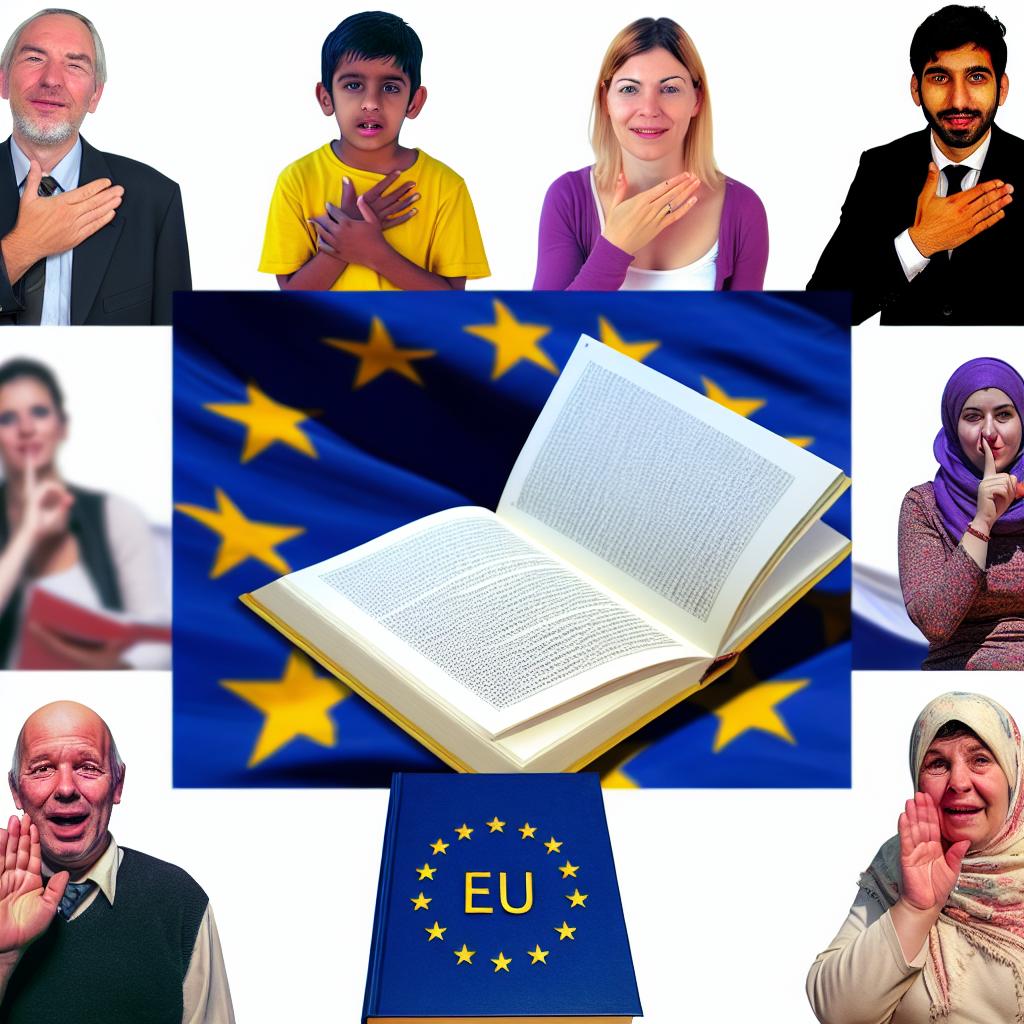
2 min read
06/04/2024
Linguistic Diversity in the European Union and Protection of Minority Languages
Explore How the European Union Advances and Safeguards Linguistic Diversity Through Its Language Policy
The EU's Approach to Promoting Multilingualism
The European Union has a policy aimed at promoting and safeguarding linguistic diversity. Although it lacks a specific policy on non-official languages, the EU focuses on fostering multilingualism among its official languages. This commitment is evident in programs and funding initiatives such as the European Social Fund and the Lifelong Learning Program, which support the teaching and usage of regional and minority languages.
The primary objective of the EU is to ensure effective promotion and usage of the official languages of its Member States across both public and private sectors, thereby facilitating communication and understanding among European citizens.
For instance, the CULT study, commissioned by the European Parliament, highlights the absence of provisions for multilingual digital communication in EU regulations and the case law of the Court of Justice of the European Union (CJEU) to date. This oversight has resulted in much online content remaining untranslated, leading to significant documents not being accessible in all EU official languages.
The study proposes a typology of multilingual needs to prioritize content for translation, including basic, primary, and secondary documents. It also identifies notable discrepancies in the availability of multilingual content across EU institutional websites, with some sites performing better than others.
Additionally, the study underscores the importance of transparency and formalization in EU language regimes, advocating for systematic monitoring to enhance accountability and establish a more structured approach to multilingual communication.
Furthermore, the study emphasizes the significance of multilingualism in EU communication policy to enhance accessibility and engagement with citizens, particularly considering the varying linguistic competencies within the EU populace.
In light of these findings, several recommendations are proposed, including the development of a standardized framework for multilingual communication, the institutionalization of compliance monitoring and administrative transparency, the appointment of a Multilingualism Officer, the promotion of official language use in digital communication, and the augmentation of budgetary allocations for multilingualism.
Support for Regional and Minority Languages Through Programs and Funds
The European Union recognizes the cultural and linguistic significance of regional and minority languages within Europe's diverse landscape. The EU administers various programs and funding schemes to promote their teaching and usage, such as the European Social Fund and the Lifelong Learning Program. Pangeanic, as a company specializing in language technologies, has participated in numerous projects to preserve linguistic diversity within the EU.
These programs and funds provide financial support for projects related to teaching and using regional and minority languages and promoting them across different domains, including education, culture, and public administration. The EU endeavors to safeguard and strengthen linguistic diversity across Europe through these initiatives.
The Importance of the European Charter for Regional or Minority Languages
The European Charter for Regional or Minority Languages stands as a significant legal instrument ratified by many EU member states. This charter aims to protect and promote the usage of regional or minority languages in both public and private spheres.
By ratifying this charter, member states commit to respecting, protecting, and promoting regional or minority languages within their territories. This encompasses the official recognition of these languages, as well as support for their teaching and usage across various domains.
Limitations in Protecting Non-Official Languages in EU Language Policy
While the European Union maintains a policy aimed at promoting and safeguarding linguistic diversity, it lacks a specific mandate to protect or promote non-official languages. The EU's language policy primarily focuses on fostering multilingualism among its official languages.
However, despite these limitations, the EU acknowledges the importance of regional and minority languages and provides support through programs and funds for their teaching and usage. Additionally, the ratification of the European Charter for Regional or Minority Languages by many member states underscores the EU's commitment to protecting and promoting these languages.


